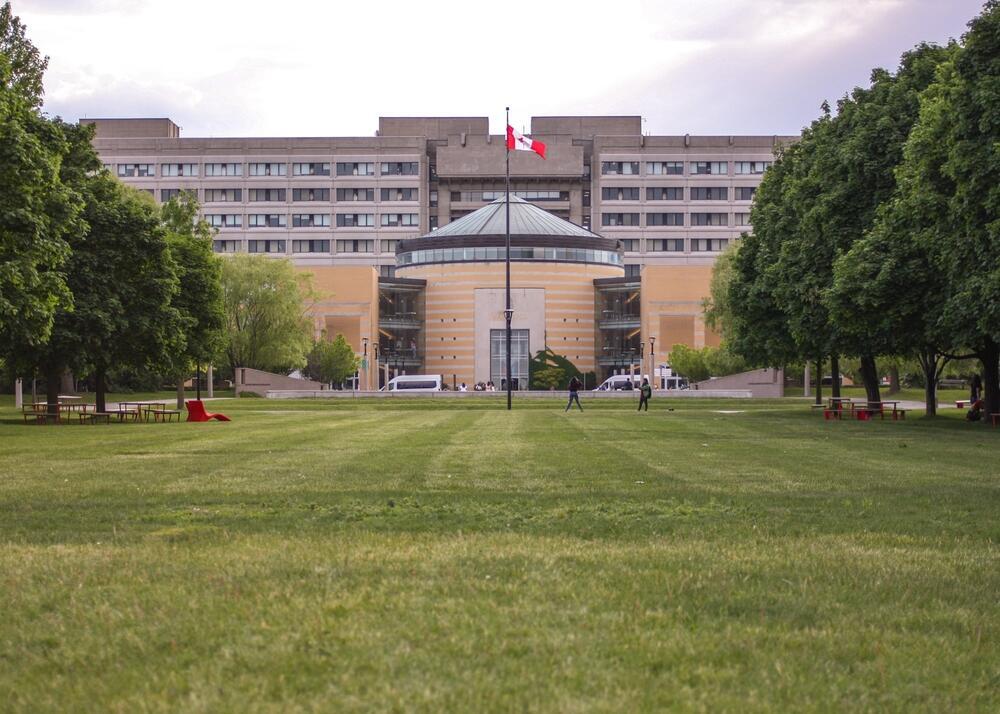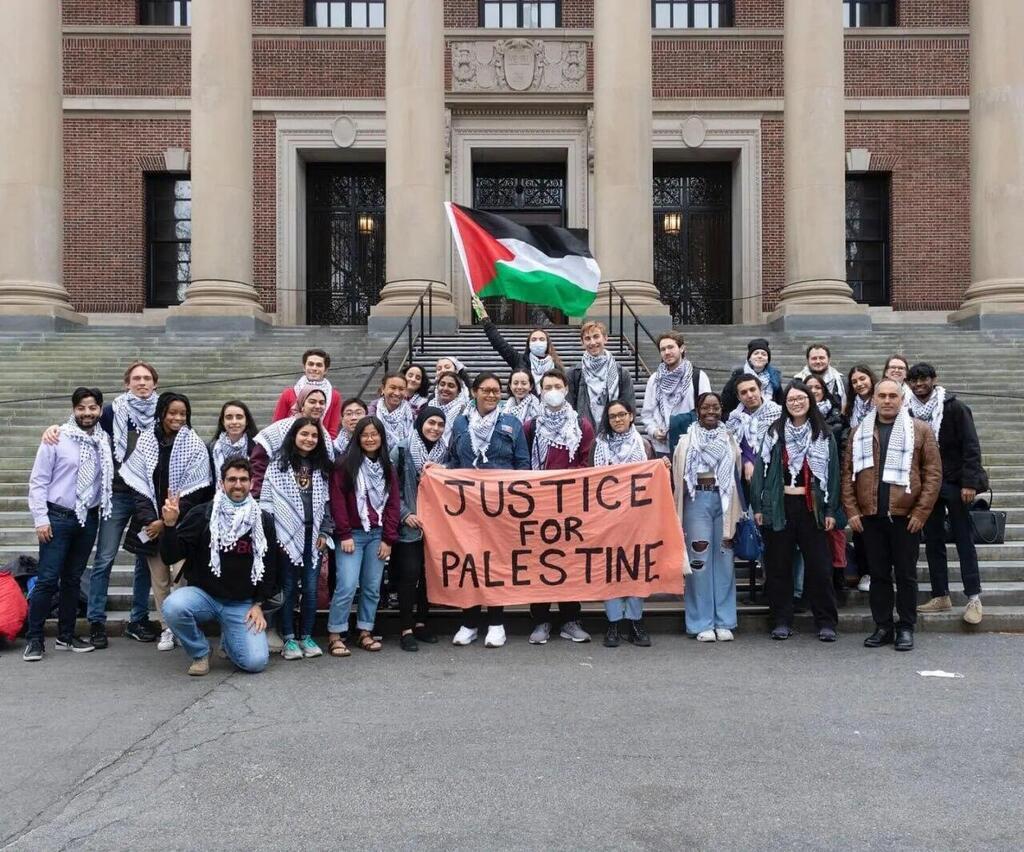The largest official workers' union at York University in Toronto has distributed a training manual for teaching assistants and instructors that encourages them to criticize and condemn Israel in any context, even if it is unrelated to the subject being taught. The document covers various subjects such as medicine, art, feminism, society, politics, culture, geography, engineering and architecture, all in reference to the Israeli-Palestinian conflict. Notably, the organization's logo, representing the largest workers' union in Canada, includes the Palestinian flag.
Read more:
The 15-page document, distributed by CUPE 3903, the union representing staff members who have not yet received appointments or work part-time at the university, which is one of the largest in Canada, suggests focusing lessons on teaching about the liberation of Palestine. Regardless of the course being taught, the document refers to Israel as a "murderous colonial project" and advocates for its condemnation.
According to the document, the presence of Jewish groups on campus is viewed as evidence that York University is complicit in what is described as "murderous colonialism." The union argues that the research connections between York University and the Hebrew University in Jerusalem further implicate the institution in this alleged complicity. The document specifically highlights the existence of "Zionist cultural institutions," including Hillel, a global Jewish student organization.
Furthermore, the document provides instructors with a prepared speech to explain to students why their class is being canceled in order to focus on learning about the liberation of Palestine. The speech states that the lesson will center on discussing and showing solidarity with the Palestinian liberation movement, with the aim of challenging what is seen as Canada and York's involvement in murder and the occupation of Palestinian lands and lives. The union assures instructors that if students resist engaging in "political work" and "community organizing" in support of Palestine, they will take measures to protect the instructors from potential sanctions.
The workers' union has a long history of accusing Israel, even before the Hamas terror attack on October 7. The union supports the BDS movement against Israel and accuses it in its various publications of apartheid and murder, and denied the right of the Zionist entity to exist.
In response to Ynet's inquiry, York University stated: "We oppose the document" and have addressed the union on the matter. "York’s commitment to support and uphold academic freedom, and freedom of expression within the limits of the law, stands. While there will be some courses and seminars where dialogue on world events could be relevant; this should occur in a respectful manner that allows for the expression of diverse perspectives in an inclusive learning environment," the York statement said.
"In this regard, the university has advised the community that we do not find the recent email communication from CUPE 3903, which provided Teaching Assistants (TAs) across the university with 'A Toolkit on Teaching Palestine' calling for diversion of their teaching from the planned curriculum, to be in accordance with the rightful expectations of the university as an employer, the needs of the students and the legitimate claims of the community. The university has reached out to the union to discuss this matter," according to the statement.
US colleges are shifting gears
Currently, campuses across the United States are developing their own regulations pertaining to freedom of expression and limitations on protests, following increased scrutiny of widespread antisemitism since October 7, the Congressional hearing about antisemitism on campus, and the resignations of the presidents of Harvard University and the University of Pennsylvania.
Cornell University, which recently faced the arrest of a student who made threats against Jews on campus through various online posts, has recently issued a new temporary policy on "expressive activity." This policy mandates prior approval for events with over 50 attendees and imposes restrictions on the use of amplification in specific areas of the campus, limited to one hour per day.
Similarly, Harvard University's interim president, Alan Garber, who assumed the position after Claudine Gay's resignation, recently issued a statement outlining "guidelines on protest and dissent." These guidelines include a prohibition on protests that disrupt university activities in areas such as classrooms, dormitories and dining halls. Additionally, the guidelines prohibit the disruption, defacement, destruction or removal of lawfully placed signage or banners, in response to instances of stolen banners and their defacement. However, the guidelines underscore the significance of "freedom of expression" as a fundamental element of Harvard's mission as a platform for the free exchange of ideas, and they advocate for protests and related activities to be permitted in designated areas.
Sally Kornbluth, the president of MIT, distributed a letter to the university community announcing the formation of a new committee to address the delicate balance between freedom of expression and the need to protect against harassment, violence, intimidation and discrimination. Other universities, including NYU, CUNY, and Northwestern, have also established committees to investigate and combat antisemitism.
However, these initiatives have faced controversy and public backlash in some instances. At Barnard College in New York, administrators removed a pro-Palestinian statement published by the Department of Gender and Sexuality Studies, deeming it as "forbidden political speech." Subsequently, the college introduced revised regulations that grant the administration control over all content published on school websites, allow for restrictions on political activities of the faculty, and impose a 28-day approval process for events. Additionally, faculty members were asked to remove pro-Palestinian signs from their office doors. In response, the Department of Gender and Sexuality Studies launched its own website, where pro-Palestinian statements are published without interference.
At the University of California (UC), the Board of Regents had been scheduled to vote on a controversial measure to limit political expressions on official channels, such as university websites. However, due to pressure from students, faculty and the media, who viewed the proposal as an attempt to suppress criticism of Israel and undermine the principles of freedom of expression and academic freedom, the vote has been postponed until March.





